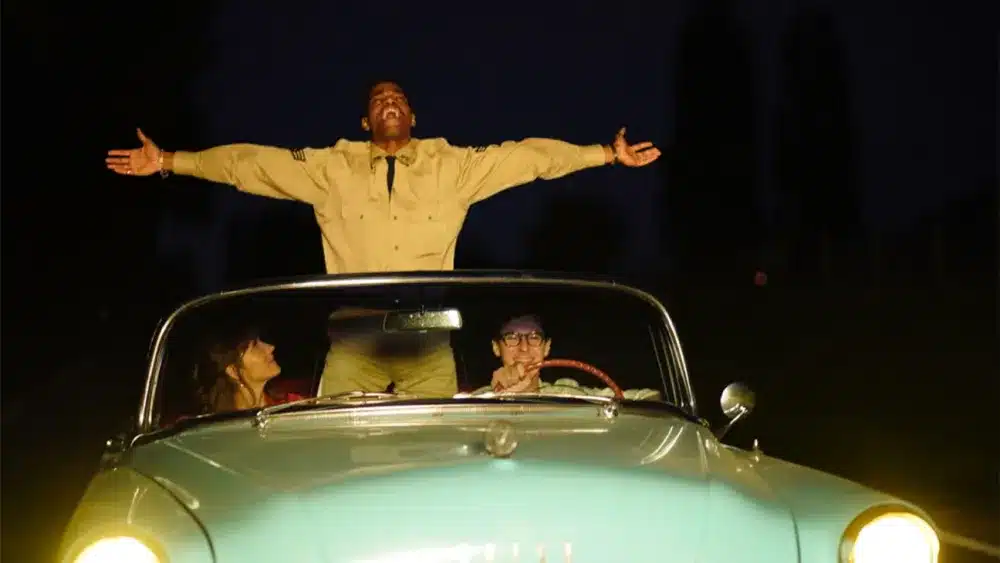




Director: Katell Quillévéré | Cast: Anaïs Demoustier, Vincent Lacoste, Hélios Karyo, Morgan Bailey, Josse Capet, Paul Beaurepaire, Margot Ringard Oldra | France, Drama 125′
Katell Quillévére, best known for her heart-rending 2013 drama Heal the Living, really knows how to bring beauty and intense emotion to the screen without shying away from difficult themes. The opening titles of her latest film Along Came Love (Le Temps d’aimer) show archive footage of the public humiliation of French women or ‘collabos’ who engaged with German soldiers during the Second World War. Rather like the ‘tarring and feathering’ carried out by the IRA on women suspected of involvement with British forces during the ‘Troubles’ in Northern Ireland these reflect the unspeakable face of misogyny. What follows, by contrast, is a poignant and ravishingly depicted love story starring Anaïs Demoustier and Vincent Lacoste and set in Brittany in 1947. Despite its unevenness in chronicling four decades of their life, Along Came Love will win your heart.
Demoustier is Madeleine, a collabo whose young son Daniel (Hélios Karyo) is the result of a brief affair with a German soldier. Disgraced and desperate to escape the past she is working as a waitress in a seaside restaurant where she meets François (Vincent Lacoste) a wealthy intellectual, bashful in his beret and dapper navy suit. Madeleine is decked out in Breton national costume with a starched white headdress that certainly adds to her allure. Love is in the air and Francois orders two glasses of champagne, one he offers to her.
The director and her co-writer Gilles Taurand don’t quite manage to keep us convinced of their fraught story during the film’s two hour running time. There are certainly bursts of intensity to the fractious wartime marriage but also times where melodrama takes over and leaves us confused: intellectually and sexually, the two appear to misfire – Francois is an old school academic, Madeleine a somewhat lightweight character given to a flirtatiousness that seems inconsistent with the couple’s supposed romantic bliss which sends them down the aisle and then to his spacious apartment in Paris.
Life in the capital is often turbulent and this conflict plays out during the time the couple have fled Paris and are living in Châteauroux during the 1950s, where they run a bar frequented by American GI’s from a nearby military base. Here they meet and become involved in a ‘menage a trois’ with a Black soldier named Jimmy (Morgan Bailey) who fires up their sexual fantasies with his lusty corpulence. But the affair between them feels gauche and unconvincing. In contrast Madeleine’s relationship with her son (played as a young man by Paul Beaurepaire) seems much more authentic. All in all, Demoustier and Lacoste manage to carry the film through these awkward moments and into the 1960s and 1970s where her stylish rigouts accurately reflect the times as the story builds to its devastating conclusion.
During his studies François had apparently had an illicit affair with a male student who comes back to haunt him in a dramatic turns of events involving arson and the authorities. Nobody wants to be in trouble with the French police but soon the inevitable occurs and Francois is taken away.
All this feels less authentic than Madeleine’s more reasonable backstory, based, apparently, on the life of Quillévéré’s own grandmother. With its echoes of Douglas Sirk’s 1958 outing A Time to Love and a Time to Die this arthouse melodrama from the Ivorian director is certainly a welcome addition but not one of her best. @MeredithTaylor
NOW AT CURZON CINEMAS